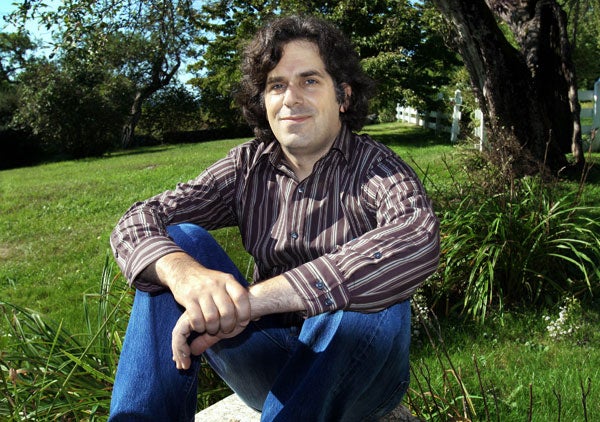Chronic City, By Jonathan Lethem

Your support helps us to tell the story
From reproductive rights to climate change to Big Tech, The Independent is on the ground when the story is developing. Whether it's investigating the financials of Elon Musk's pro-Trump PAC or producing our latest documentary, 'The A Word', which shines a light on the American women fighting for reproductive rights, we know how important it is to parse out the facts from the messaging.
At such a critical moment in US history, we need reporters on the ground. Your donation allows us to keep sending journalists to speak to both sides of the story.
The Independent is trusted by Americans across the entire political spectrum. And unlike many other quality news outlets, we choose not to lock Americans out of our reporting and analysis with paywalls. We believe quality journalism should be available to everyone, paid for by those who can afford it.
Your support makes all the difference.Over the past 15 years, I have made repeated attempts to learn to admire the novels of Jonathan Lethem. This may seem a quixotic ambition. After all, I have plenty of novels to read by writers I already like, and even the most generous of readers allow themselves a three-strikes-and-you're-out attitude. The reason why I've kept persisting is partly because so many of my friends admire his writing, but mainly because his work engages with so many essential contemporary concerns that few other authors address.
Foremost among these is his engagement with genre, especially the paranoid science fiction of Philip K Dick (Lethem recently edited the Library of America edition of Dick's selected novels). In his early work, novels such as Gun, With Occasional Music, Amnesia Moon and As She Climbed Across the Table, this influence was most explicit, but his most admired novel Motherless Brooklyn is a detective story. He was still smuggling ideas from superhero comics into his most serious book, The Fortress of Solitude in 2003.
Also essential to Lethem's work is a deep understanding of popular culture - films, music, comics - and their impact in shaping his characters' consciousness. But, unlike many writers who share these youthful concerns, he is not afraid to address serious political and philosophical subjects. Viewed like this, he seems the most essential author writing today.
Yet, for this reader at least, nothing clicked. The early work seemed thin, I found the Tourette's-suffering protagonist of Motherless Brooklyn tedious, and it took me three attempts to get through The Fortress of Solitude. His most recent novel, You Don't Love Me Yet, got me through a long bus ride, but I completed this inconsequential book about a band with no real sense of why Lethem had written it.
So I started Chronic City anticipating a struggle, but soon found myself, to my amazement and gratitude, more gripped by the novel than almost anything I read in the last year.
Admittedly, your enjoyment of it will depend on your tolerance for fiction about pop culture. The book's structure seems to have been largely designed to facilitate long conversations about Steve Martin, the Rolling Stones and Marlon Brando between the two main characters. These are Chase Insteadman, a former child star rich enough to sit in burger bars discussing the Criterion Collection all day, and Perkus Tooth, a somewhat paranoid pop critic based on one of Lethem's real-life mentors, the music writer Paul Nelson.
It will also help if you can cope with yet another novel that seems to be set in a parallel reality, a science-fiction trope so hackneyed that it can even be found in junk TV shows like Fringe and Heroes. But, those hurdles cleared, this book provides rich reading pleasure.
It's not merely about two men discussing pop culture, of course, but also Chase's fiancée Janice Trumbull, an astronaut trapped on the International Space Station - and the movements of a giant tiger rampaging through New York, an imaginary ceramic named chaldron that only exists in an online game, romantic rivalry and, perhaps most of all, how to live in an alternate reality.
Put like that, I realise it sounds hideous, but although it falls apart in the final hundred pages, until then the novel is indecently enjoyable. Where Lethem excels is in capturing the value of a life dedicated to observation, whether seeking out secret meanings in Hollywood comedies and old albums, or watching the interaction between the wealthy at Upper East Side dinner parties. Many readers may regard such preoccupations as trivial, but Lethem convinces you of their value. It is also part of a larger narrative game. Only through careful reading and regular trips to the internet can the reader truly inhabit Chronic City. Forcing us to adopt this approach is Lethem's true achievement. In doing so, he makes Chase Insteadmans of us all.
Matt Thorne's latest novel is 'Cherry' (Phoenix)
Join our commenting forum
Join thought-provoking conversations, follow other Independent readers and see their replies
Comments